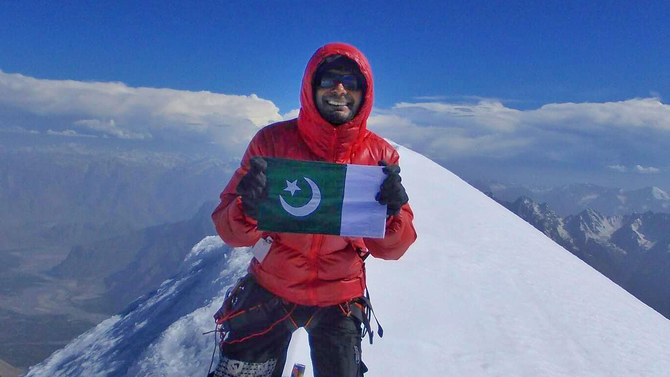KARACHI: Pakistan is expected to receive about $2.5 billion in financing from the International Monetary Fund (IMF) during the current fiscal year (FY26), which analysts say will support the country’s bid to re-enter the international bonds market through instruments such as sukuk or Panda bonds.
The funding will be part of the IMF’s $7 billion commitment to Pakistan over the next two years, comprising $5.2 billion under the Extended Fund Facility (EFF) and $1.4 billion through the Resilience and Sustainability Facility (RSF), aimed at strengthening the country’s foreign exchange reserves, according to the IMF’s latest country report.
“The first review under the RSF, if on schedule, would go to the Executive Board for approval sometime in late 2025, along with the second EFF review,” IMF’s resident representative Mahir Binici told Arab News in a text message.
The Fund’s second review of Pakistan’s economy and end-June 2025 performance criteria is scheduled for September 15. If completed successfully, it would lead to the release of approximately $1.04 billion under the EFF and $211 million through the RSF. A third review is scheduled for March 2026 and would entitle Pakistan to the same amount of funding, if cleared.
“This would be the earliest time at which Pakistan could access RSF-related financing,” said Mahir, referring to the $1.4 billion climate resilience loan the lender approved earlier this year in May. The RSF will be disbursed in equal tranches of about $211 million over the next 28 months.
Pakistan is consistently ranked among the nations most vulnerable to climate change. The country suffered its worst floods in 2022, which killed over 1,700 people, displaced millions and caused infrastructure damage worth an estimated $30 billion. Even this monsoon season, flash floods have already killed more than 60 people, mostly in the country’s northwest and central regions.
The climate funding will be disbursed “with each joint EFF and RSF review,” Mahir said.
“The first EFF review and RSF request were recently concluded, and the program implementation has been strong,” he said in response to a question about Pakistan’s performance in terms of compliance with the loan’s conditions.
Sana Tawfik, a Karachi-based economist and head of research at Arif Habib Ltd., said the IMF’s financial support was a key factor behind Pakistan’s improving macroeconomic indicators and would keep the government on track to secure funding from both bilateral and commercial lenders.
“The bilateral lenders like China, Saudi Arabia and other countries, as well as Pakistan’s commercial lenders closely observe whether or not the IMF is onboard,” she said.
Tawfik maintained Pakistan was aiming to return to the international bonds market, potentially through a sukuk issue or Panda bonds.
In March, Finance Minister Muhammad Aurangzeb said his government aimed to raise about $200 million through Panda bonds by December 2025 to diversify funding sources, reduce dependence on Western markets, and boost foreign exchange reserves.
The move came after an improvement in Pakistan’s sovereign credit rating by three major agencies, with the government targeting a “single-B” rating to regain access to global debt markets.
“The IMF staying on board is very important for this,” Tawfik said, adding that continued dollar inflows were also critical to repaying Pakistan’s external debt.
In FY26 alone, the country is expected to repay around $17 billion in foreign loans, excluding the current account deficit, according to IMF data.
“The significance of this 37-month loan program is that it came as a medium-term support for Pakistan and that’s why we are seeing improvement in our macroeconomic indicators,” she told Arab News.
Muhammad Waqas Ghani, head of research at JS Global Capital Ltd., said participation in the IMF program served as a crucial policy anchor, supporting structural reforms aimed at stabilizing Pakistan’s fragile economy.
While the country looks to tap global capital markets, Ghani said “association with the Fund is essential for enhancing confidence among both local and international investors.”
He added that continued IMF backing was key to unlocking further multilateral and bilateral support.
Tawfik agreed.
“The IMF support was important for Pakistan at the time [it came close to] default [in 2023] and it will remain important until we properly stabilize as an economy,” she said.


















